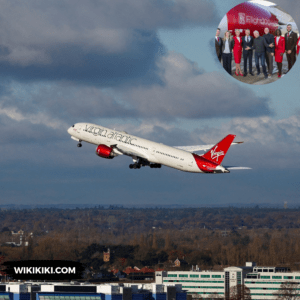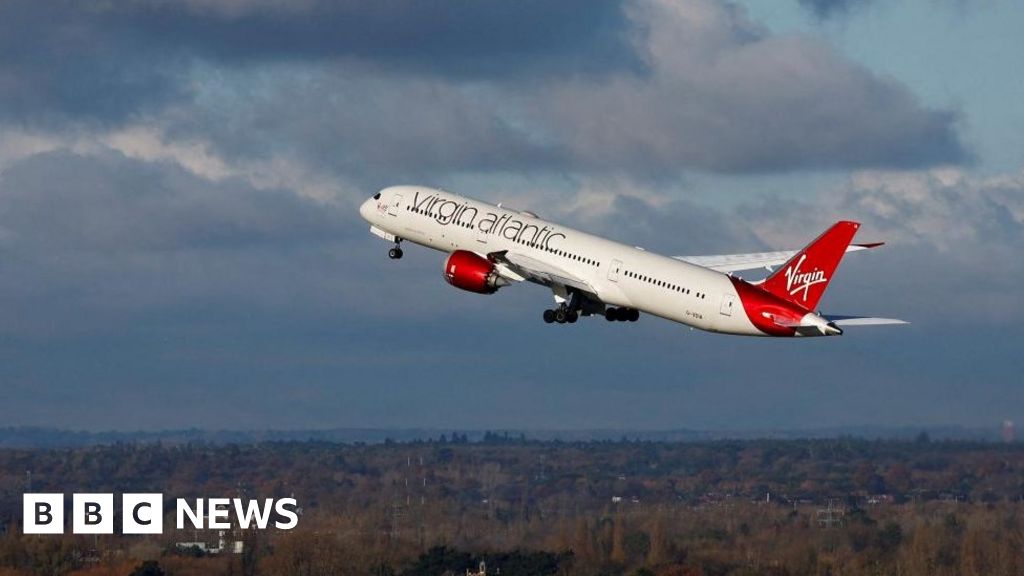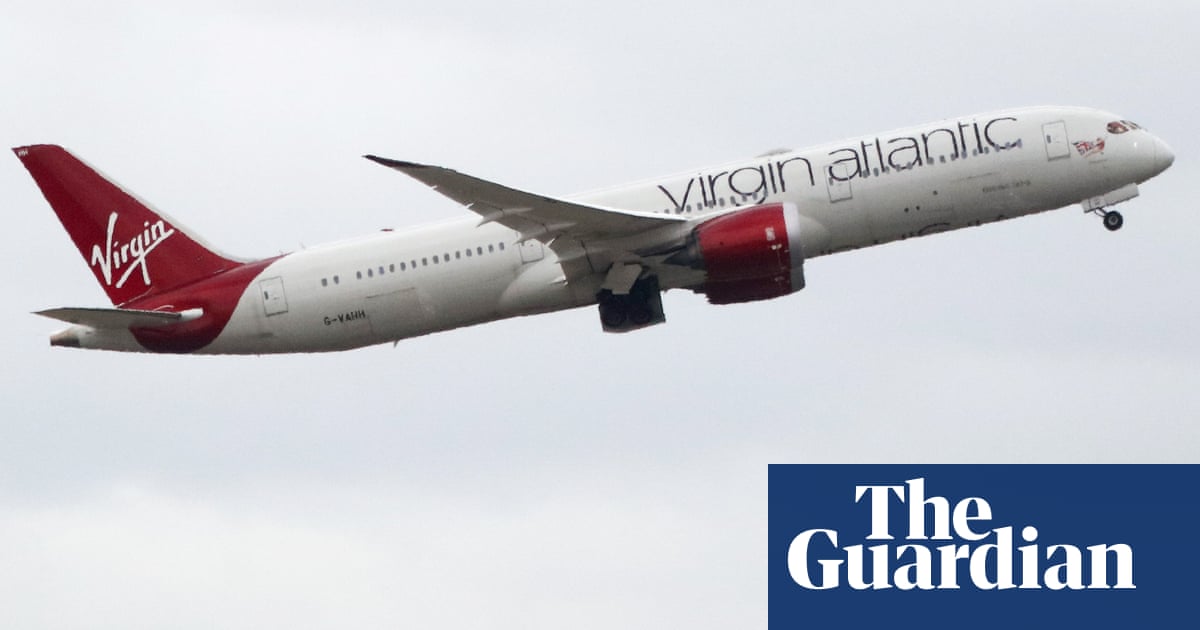Virgin Atlantic has successfully launched the world’s first transatlantic flight powered exclusively by Sustainable Aviation Fuel (SAF). The Boeing 787 Dreamliner, named Virgin100, departed from London Heathrow bound for New York’s JFK airport.

Also Read: Callum Skye: Callum Unveils an Electric Multi-Terrain Vehicle
This flight partly funded by the UK government, a step in the quest for sustainable air travel. Traditionally, airlines have utilized a blend of up to 50% alternative fuels known as SAF.
However, Virgin Atlantic’s Flight VS100 operated under special dispensation, carrying no paying passengers and relying on fuel derived primarily from waste products such as tallow and used cooking oil.
Transport Secretary Mark Harper who was onboard the flight, expressed optimism about the SAF, stating, “Today’s 100% SAF-powered flight shows how we can decarbonize transport both now and in the future, cutting lifecycle emissions by 70% and inspiring the next generation of solutions.”
The UK government has continued support for the emerging SAF industry, and its role in job creation, economic growth, and achieving the goal of jet zero.
Virgin Atlantic Founder Sir Richard Branson also a passenger on the flight, told the importance, stating, “The world will always assume something can’t be done until you do it.”
The airline sees SAF as an element in decarbonizing long-haul aviation, as it can be integrated into existing aircraft.
Critics argue that the claims made by the government and airlines about the environmental benefits of SAF may be overstated.
Also Read: 2026 Renault Twingo Returns as an Affordable EV Car
The Aviation Environment Federation’s Cait Hewitt expressed skepticism, stating, “The idea that this flight somehow gets us closer to guilt-free flying is a joke.”
She addressed that scaling up SAF production sustainably poses challenges, and for now, the most effective way to reduce aviation emissions is to fly less.
The Virgin Atlantic flight utilized 70 tons of SAF, with 88% of the fuel blend derived from hydroprocessed esters and fatty acids (HEFA) made from waste cooking oils.
The remaining 12% consisted of plant-based synthetic aromatic kerosene (SAK). While the flight’s emissions during travel were comparable to traditional jet fuel, Virgin Atlantic claimed a 70% reduction in lifecycle emissions, factoring in carbon absorption during plant growth and waste diversion.
Virgin Atlantic’s CEO Shai Weiss, said SAF as the only viable solution for decarbonizing long-haul aviation. He also acknowledged the need for increased investment and regulatory support to scale up production.
Currently, SAF represents less than 0.1% of global jet fuel volume, and the industry faces challenges in meeting the targets set by regulatory bodies.
Also Read: 2025 Toyota Camry Unveiled: Exterior, Interior and Performance
Airlines UK representing UK-registered carriers, called for affordable SAF access to meet the government’s 10% SAF target by 2030.
The aviation industry sees SAF as a transitional step while awaiting the development of truly net-zero technologies, such as e-fuels manufactured using captured carbon dioxide or hydrogen.
Scientists aboard Flight VS100 will conduct assessments of non-carbon emissions, including contrails and particulates, the impact of which on global warming remains not fully understood.
While the aviation industry heralds SAF as a solution, environmental campaigners argue that the focus should be on future technologies like synthetic fuels and advanced biofuels.
The Virgin Atlantic flight comes on the heels of a global summit where nations at the International Civil Aviation Organization agreed to strive for a 5% reduction in the carbon intensity of jet fuel by 2030.
Critics argue that the flight’s environmental benefits may be compromised by the type of SAF used, and concerns persist about the scalability of SAF production. The aviation industry contends that SAF is a step towards future net-zero technologies.
While SAF currently represents a small fraction of jet fuel consumption, industry leaders are optimistic about its potential to contribute to achieving net-zero emissions in aviation by 2050.
Also Read: Ultraviolette F99 Electric Bike Unveiled at EICMA 2023

/cloudfront-us-east-2.images.arcpublishing.com/reuters/ILKXSZULMFMY5JPXRWWQMNK5ZA.jpg)






















